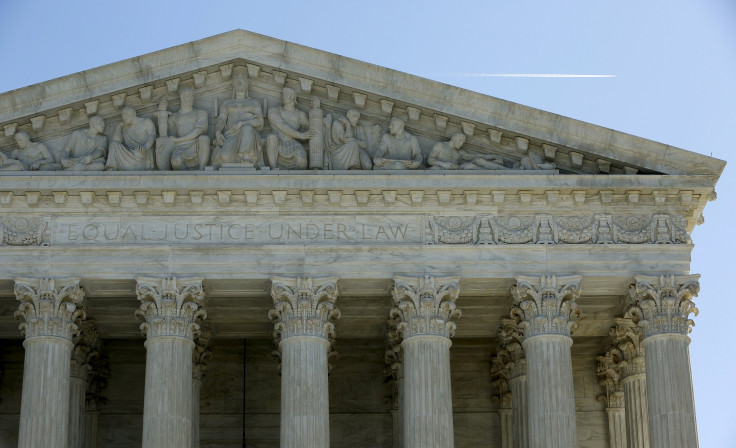Short-Staffed US Supreme Court Faces Potential Deadlock In Several Key Cases

Fears of a potential deadlock loom large as the United States Supreme Court begins the last phase of its nine-month term Monday. The country’s top court, which has been left short-staffed since Justice Antonin Scalia’s death in February, is expected to release a batch of opinions on several cases later in the day.
“I see the justices as almost trying to hide,” Michael Dorf, a constitutional law professor at Cornell Law School, told Bloomberg. “There’s a vacancy. There’s this extraordinary inaction by the Senate. There’s a presidential campaign that is highly unusual, the outcome of which will undoubtedly affect the membership of the court. ... And there are cases on the court’s docket that connect to hot-button issues that divide the country pretty sharply.”
A foretaste of how internal divisions within the court — which is currently evenly split between liberal and conservative justices — came last week, when a tie vote left in place a stay on the execution of Alabama death row inmate Vernon Madison, who was sentenced in 1985 for the murder of a police officer.
On Monday, and later this week, two of the “hot-button” issues that may divide the bench deal with a lawsuit challenging a federal regulation requiring many employers to provide contraceptive coverage under the Affordable Care Act, and another case challenging a Texas law that imposes new restrictions on abortion clinics.
A separate case related to debt restructuring in cash-strapped Puerto Rico, however, will not end in a deadlock as only seven justices would participate in it.
“They’re acting as if they’re trying to avoid 4-4 splits when possible,” David Strauss, a constitutional law professor at the University of Chicago, told Bloomberg. “If they can decide a case narrowly in a way that will get five or more votes, they will do that.”
Despite that, the possibility of several deadlocks remains very real, given that the Senate has refused to consider President Barack Obama’s nominee Merrick Garland for the ninth seat.
“Conservative activists are right that Merrick Garland would tilt the Supreme Court very seriously to the left, but that's because he's a Democratic nominee and he's breathing,” American attorney Tom Goldstein, who founded the widely read SCOTUSblog, told NPR. “Anyone appointed by a Democratic president is going to be much more liberal than the archconservative Justice Scalia. But among potential Democratic appointees, he's as good as conservatives could ever reasonably hope for. He is really down the middle.”
© Copyright IBTimes 2024. All rights reserved.






















